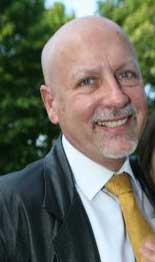Gerard Le Chevallier, 1953 - 2010
Chief, Political Affairs and Planning Section (El Salvador)

Gerard Le Chevallier, a national of El Salvador, was Chief of the Political Affairs and Planning Section for the UN Stabilization Mission in Haiti (MINUSTAH) for six years.
“I first met this charismatic, insightful, and dedicated international civil servant in an earlier life, when he was a Salvadoran politician,” said a former colleague.
In 2000, before joining MINUSTAH, Gerard worked for the United States-based National Democratic Institute (NDI), first as its resident director in Haiti, then in Paraguay, later in Bosnia, and finally as the regional director for Latin America and the Caribbean. He also was a member of the NDI delegation to the 1989 Chilean elections.
Gerard held several government positions in his home country. At age 27, he was the Director of Tourism, and, beginning in 1984, he spent five years as Secretary of Information for Presidents Álvaro Magaña and José Napoleón.
Between 1991 and 1994, Gerard served as Deputy of the Legislative Assembly of El Salvador and the Central American Parliament. He was a key negotiator in the Salvadoran Peace Accords that ended the country’s 12- year civil war in 1992.
In an interview with El Faro published in 2008, Gerard said: “I was born in politics.”
His tenacity and dedication to the democratic cause and to the defence of justice earned him the commonly noted name of “El Tigre.”
Working with electoral assistance activities at the UN was a natural fit. “To Gerard, democracy and politics were not theoretical concepts or spectator sports—he practiced both, sometimes at great personal risk,” said a colleague. “There is probably no one who better understood democratization opportunities and challenges in the hemisphere or the political dynamics within each country in the Americas, or possessed such a broad range of contacts in the region.”
With his great knowledge of the political landscape of the Americas, those who worked with him considered him to be one of the world’s top experts on Haiti and defined him as “a man of immense wisdom” who was “deeply committed to the Haitian people and to promoting democratic development.”
Colleagues remembered him fondly for his boundless energy, saying, “Gerard was a larger than life character who lived his life to the fullest and attracted legions of admirers into his orbit. He believed in the adage that ‘you can’t be detached and be effective.’ Gerard moved comfortably among presidents and sat at the table during high-level political negotiations,” said a colleague.
“But he also amassed a following among young people who saw in him a friend, a mentor – someone whom they could learn from, influence their careers and change their outlook on life,” a junior staffer said. “He inspired others to follow their dreams.”
“His sense of humour was always in evidence,” said a colleague. “It was most tangible in the wall of fame/ shame in his office where photographs of less-thandemocratic political leaders were turned upside down amid the seemingly hundreds of others depicting a smiling Gerard shaking hands with his democratic colleagues and heroes.”
Other colleagues recalled his generosity, contagious optimism, and his way of looking on the bright side, which made him a born peacekeeper. In Haiti “he was where he wanted to be,” a colleague said.
Gerard is survived by his wife Marcela Jiménez Avendaño, their two daughters Gisele and Nicole, and their son Raoul.